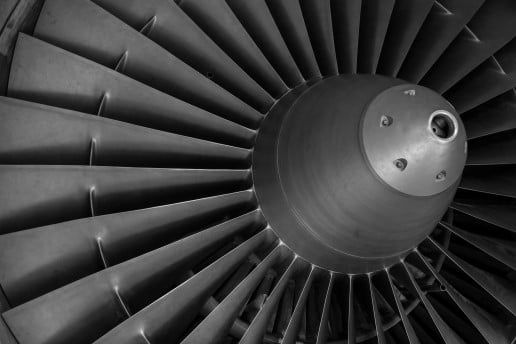Inside Supply Management Magazine
Blockchain and E-Commerce are Elevating the Aerospace Parts Trade

It’s often said that blockchain is expected to revolutionize supply management because all transactions pertaining to a product are linked digitally and can be seen by all involved parties. Likewise, the role of e-commerce has become increasingly important, as online retailing giants like Amazon have disrupted the way buying, selling and delivery are done.
The use of blockchain and e-commerce aren’t common in the aviation parts space. But online marketplace GoDirect Trade is using blockchain technology to modernize how used parts are bought and sold. Powered by Honeywell, the new platform enables buyers to search for and buy parts from sellers who have set customized “storefronts” showcasing available goods. To list their products on the site, sellers are required to provide price, product images and quality documentation, says Lisa Butters, GoDirect Trade’s general manager.
"Up until now, the ability to shop for spare parts online with prices, product images and quality documentation all in one place was unheard of for the aviation industry,” she says. “Providing that level of transparency, on every part, is a requirement on our platform.”
Importance of Documentation
Generally, used aviation parts aren’t sold online — only about 2.5 percent of transactions are online sales, she says. Closing a typical aviation parts transaction involves an average of four emails and two phone calls, she says. Additionally, buyers often wait days or weeks to learn the price of a part or to confirm availability — and they generally don’t see the quality documents until an item is sold, Butters notes.
However, making an informed decision requires having the quality documentation, she says: “Documentation is part of the value, similar to buying a diamond ring. If you're buying a diamond ring from a dealer and it doesn't have certified paperwork, then all you have from that dealer is the word that it's certified. It's the same in aerospace. Quality documentation is required by the U.S. Federal Aviation Administration and other global aerospace organizations; if you don't have the documentation, your (US)$40,000 starter could be worth $10 in scrap metal.”
In addition to quality documents, information that details transaction and repair history is available for most parts on the site. “For example, if I look up a starter, I'm able to determine who owned it last, what repair shops it's gone through and what manufacturing facility it came from,” Butters says. “On listings where the data is available, it also will show ownership transfers and where it's been installed. This gives the buyer an idea of what has gone on with the part.”
Using Blockchain in Decision-Making
Such blockchain information also can help buyers choose between several similar parts. “For example, let’s say I'm looking at two starters and only one has a part pedigree through blockchain,” Butters says. “It shows that it was last installed at a well-known commercial airline and then repaired.” But the other starter doesn't have that history, even though it has quality documents like the first part. A buyer is most likely going to choose the first part, she says, knowing that the airline company has high safety guidelines.
“What we use blockchain for is to build that part-pedigree factor, so buyers or customers have more trust in that transaction,” she says.
Honeywell plans to expand GoDirect Trade into aviation services and other markets, Butters says. And in the future for aerospace, like in other industries, blockchain, digitization and e-commerce will play increasingly larger roles in the supply chain, she says. “If the suppliers don't digitize, they're going to have a tough time transitioning to e-commerce,” she says. “To make the leap from a brick-and-mortar store that operates by phone calls and emails to an e-commerce space with a global footprint, you have to digitize your operations.”

